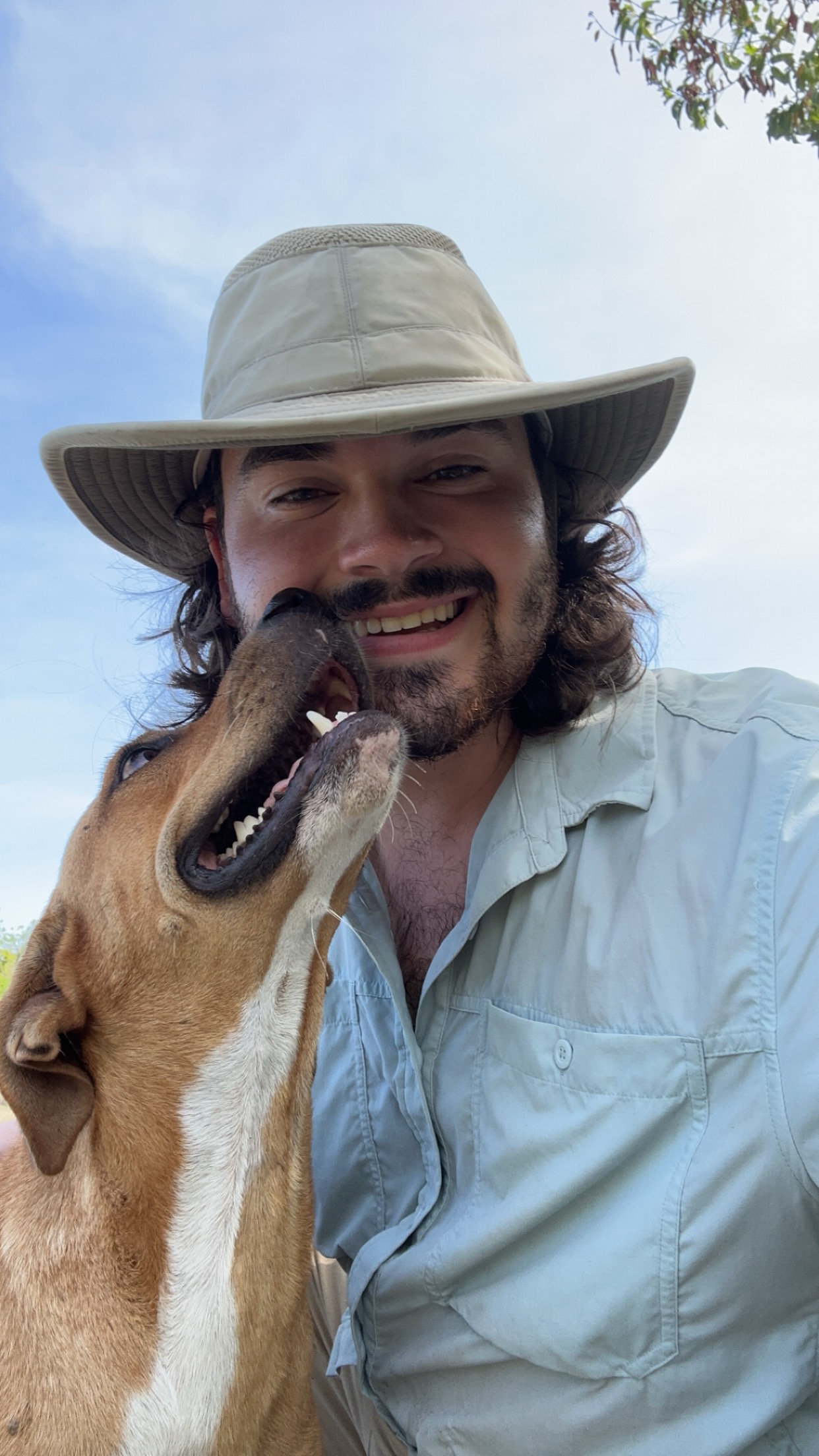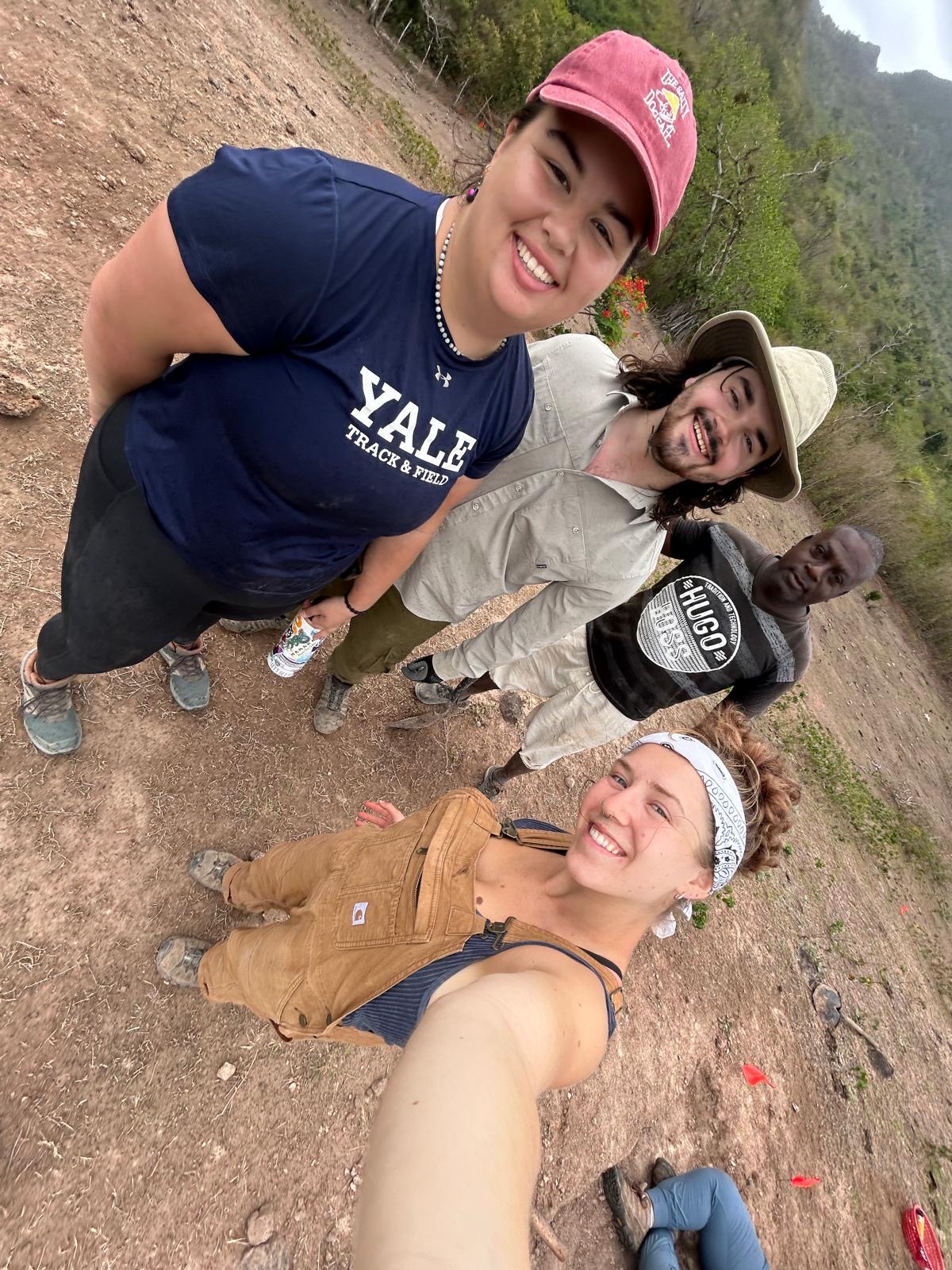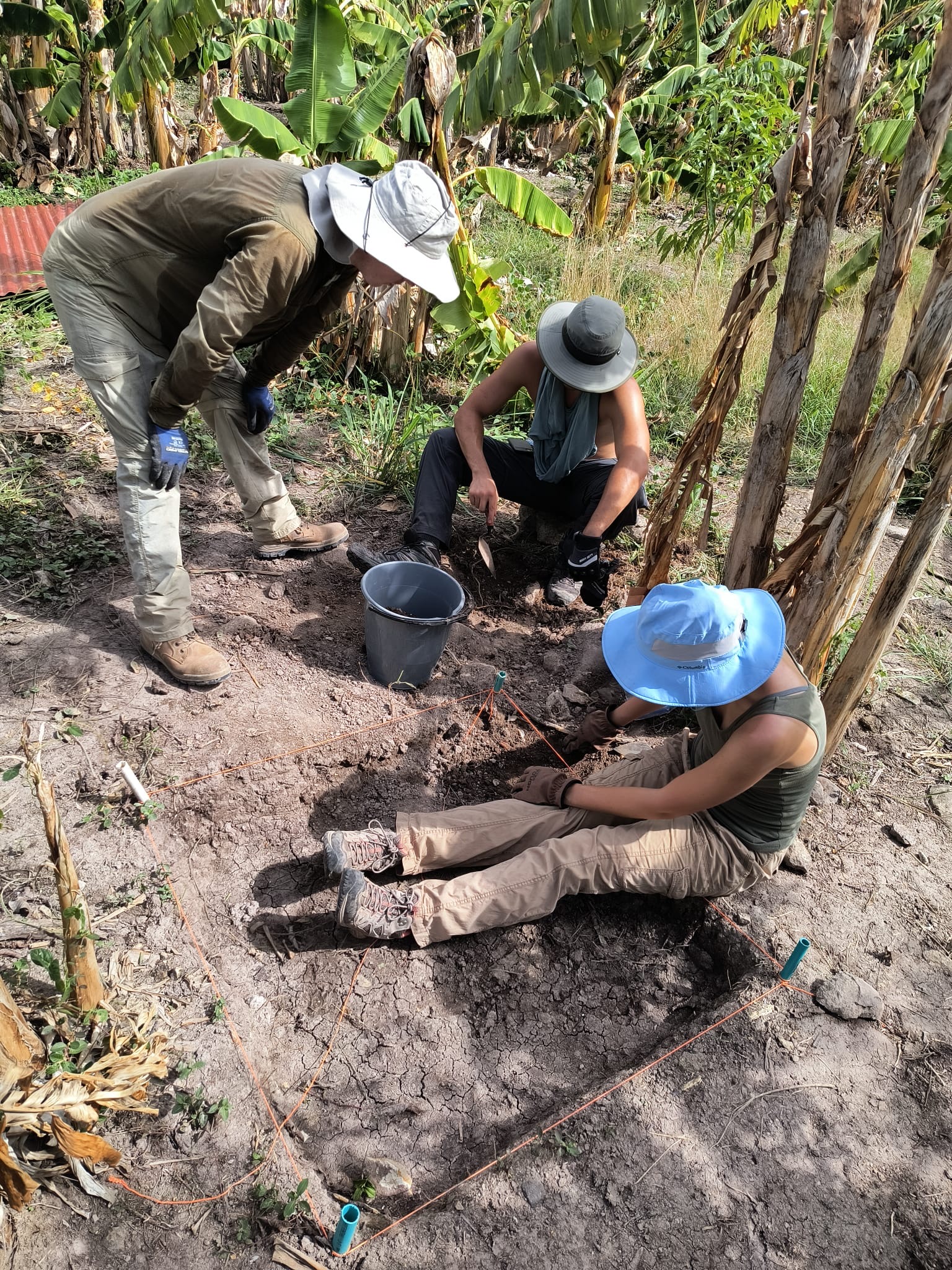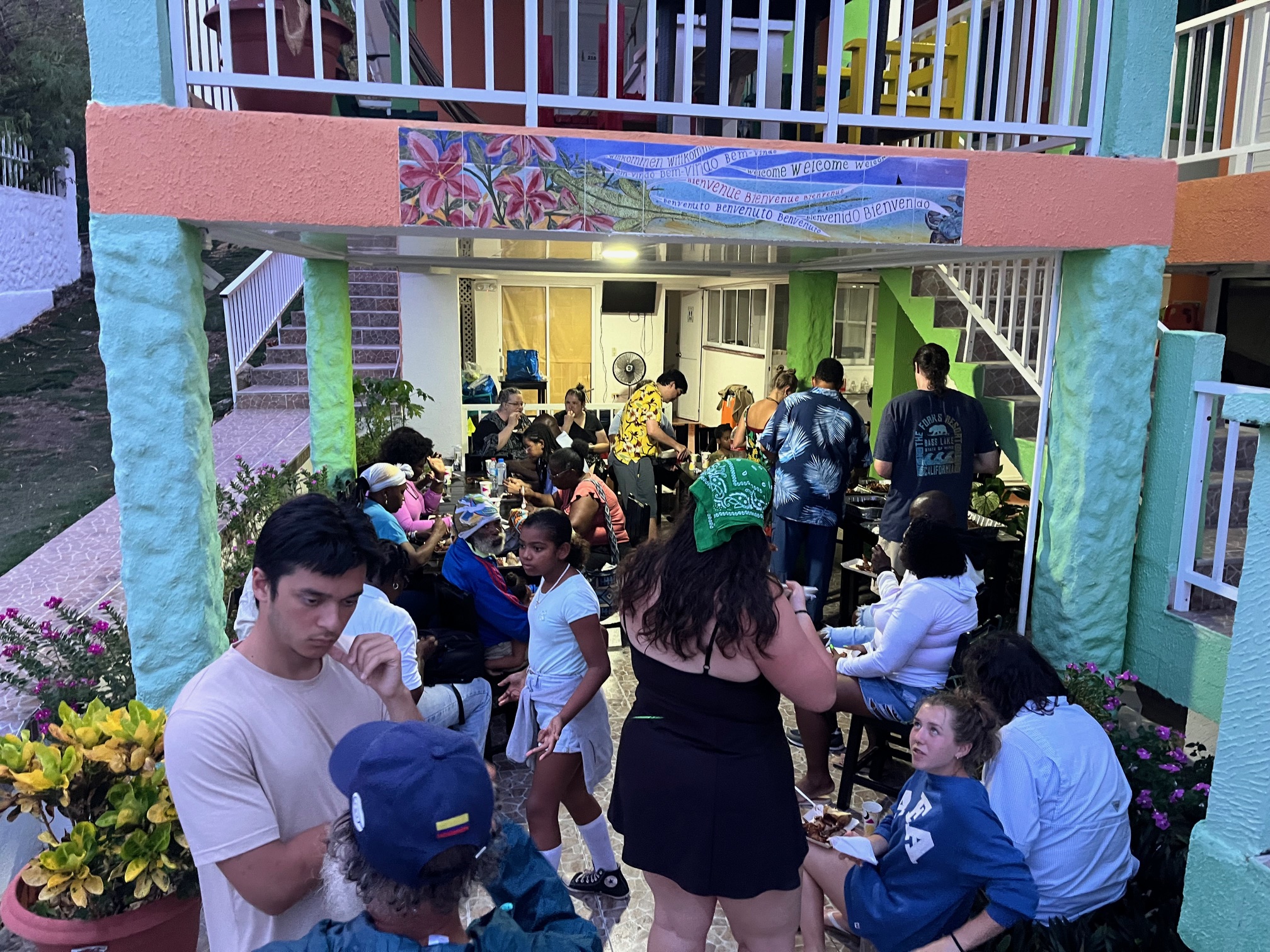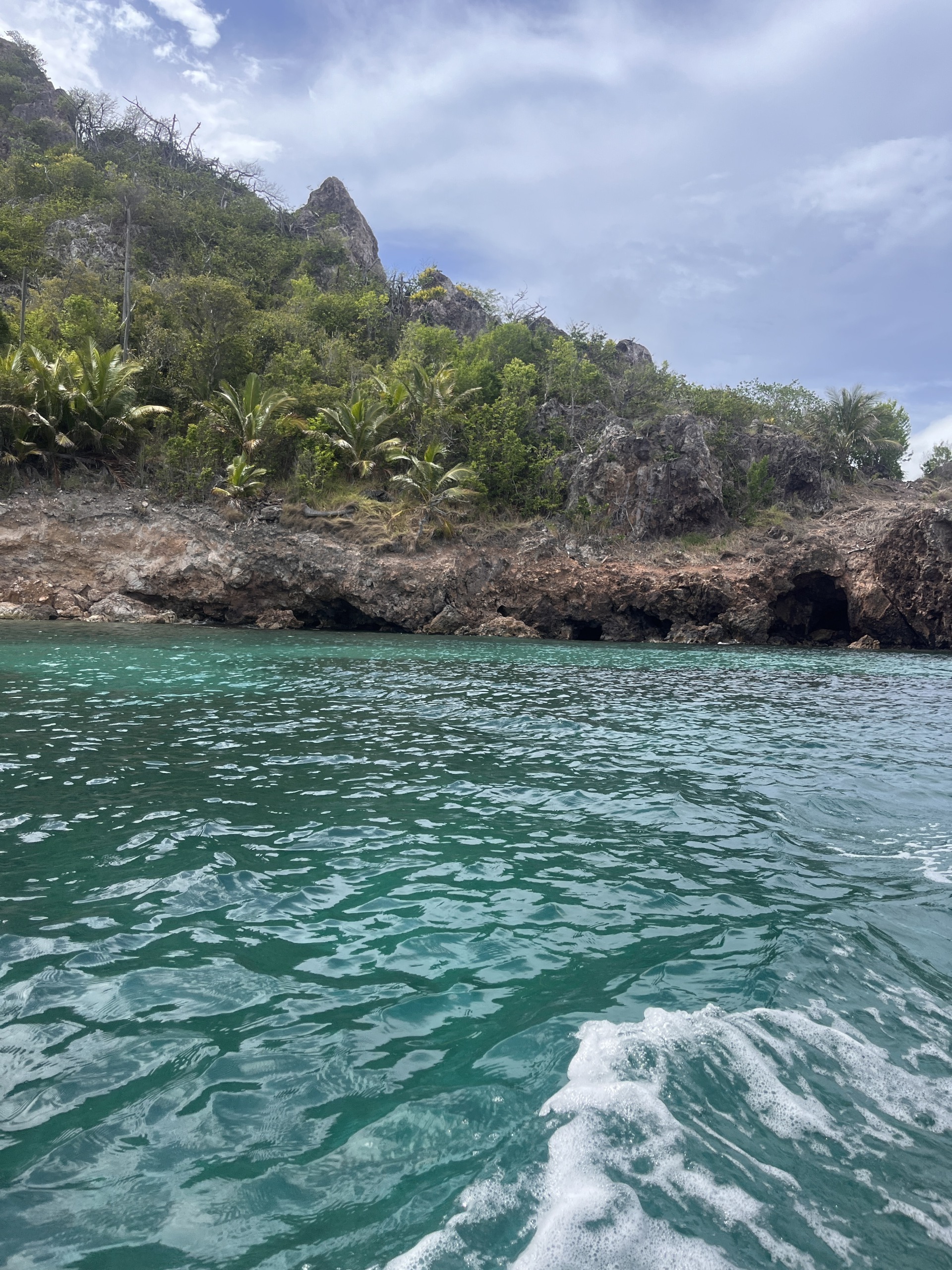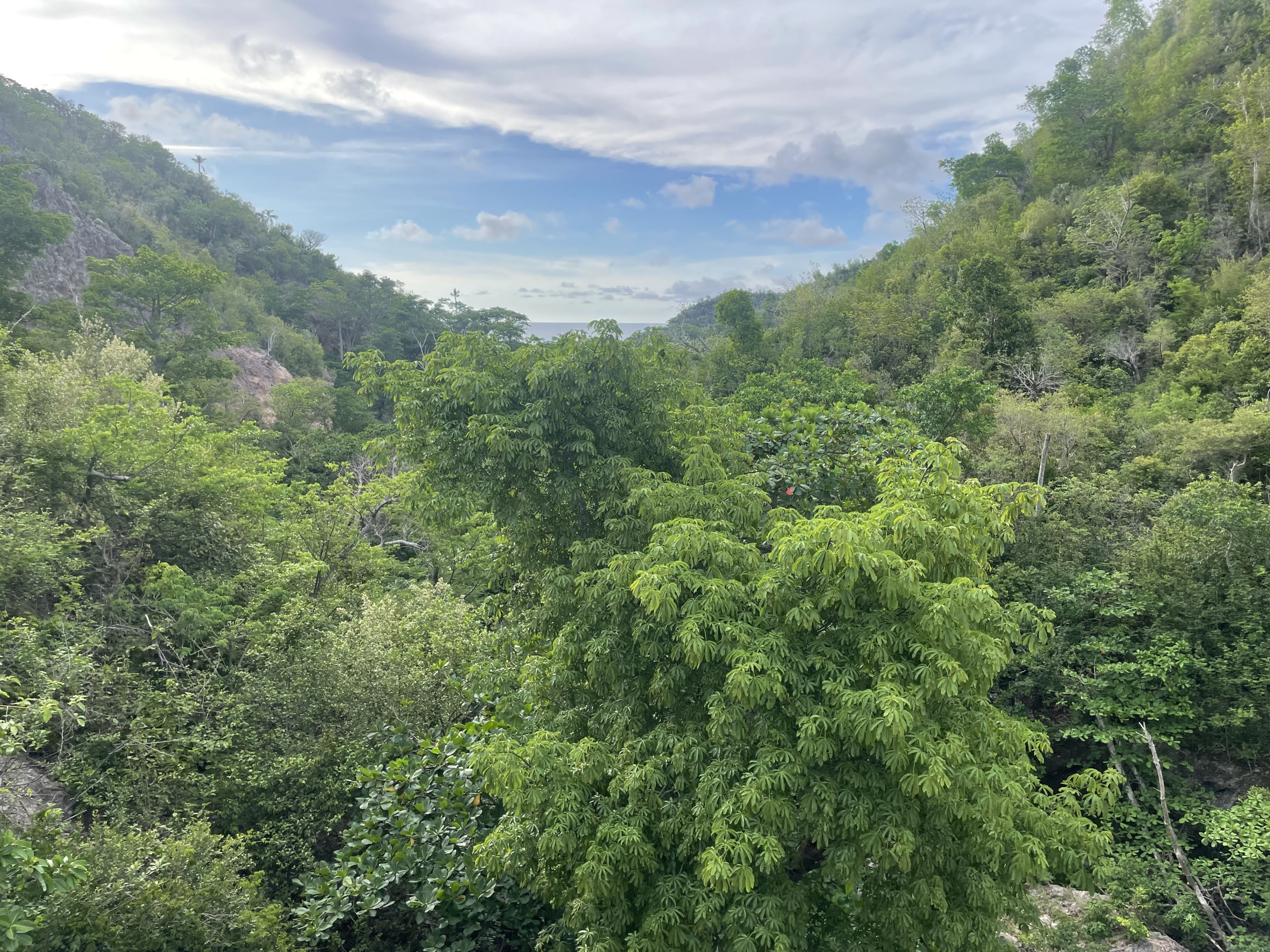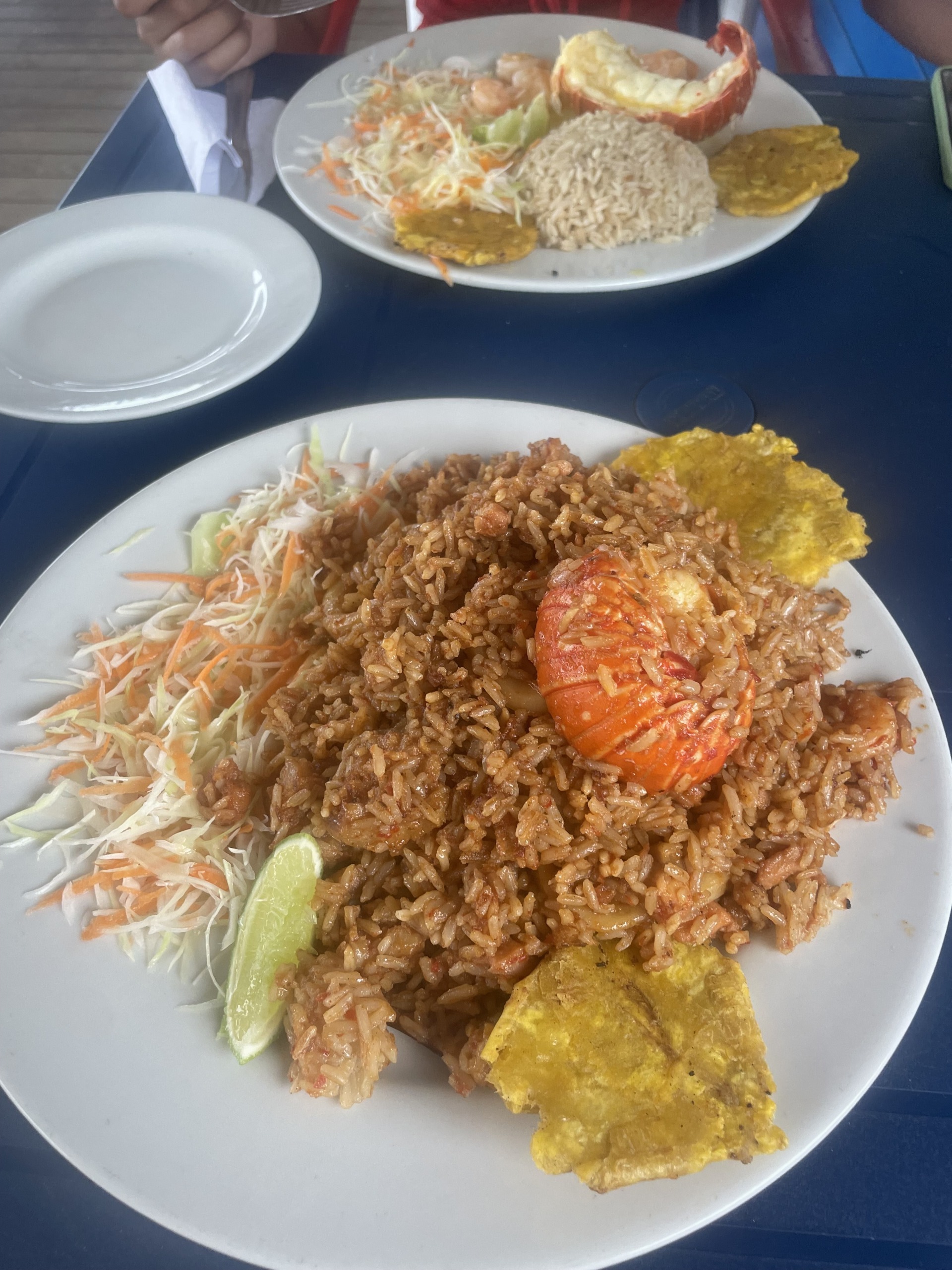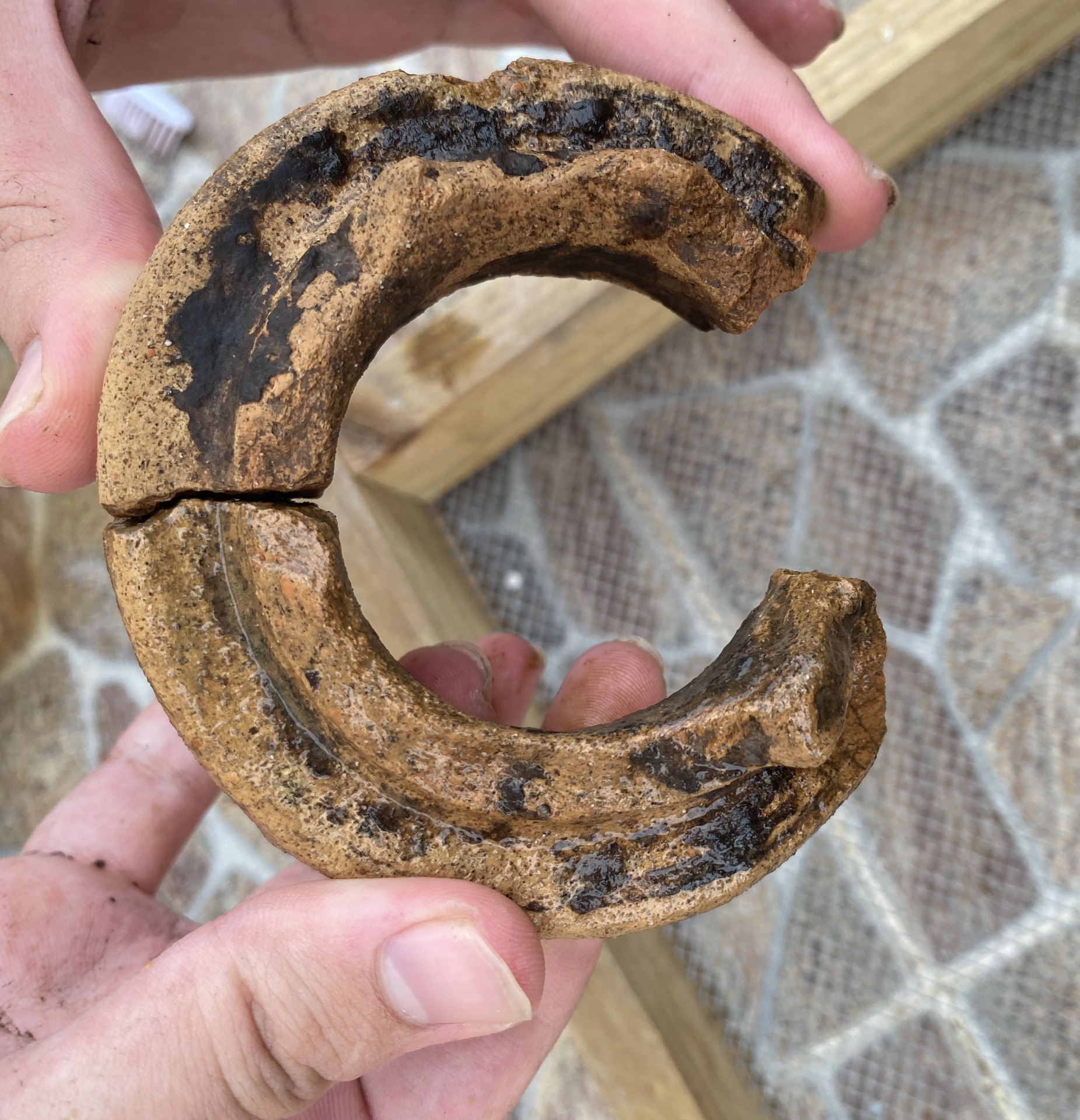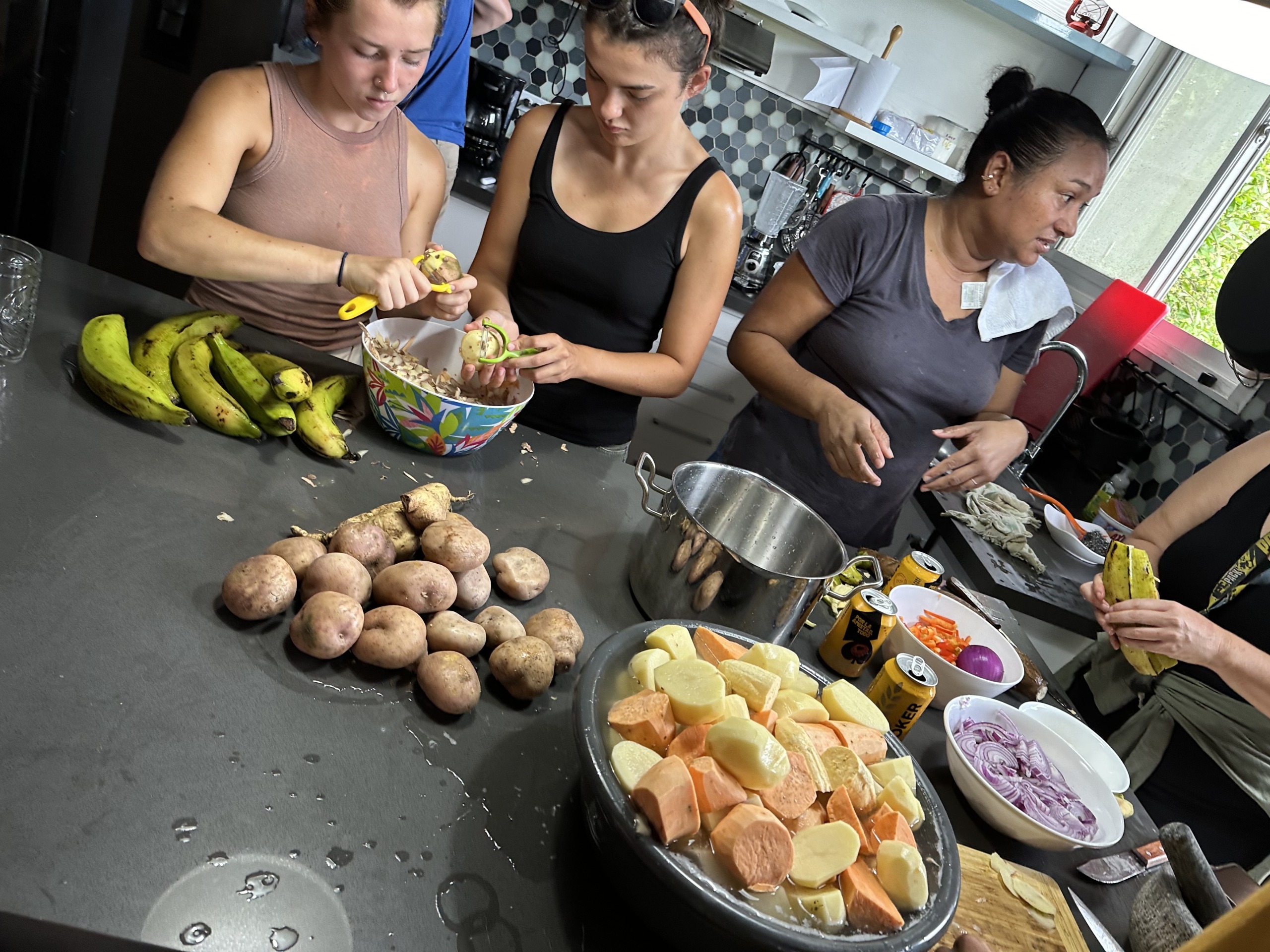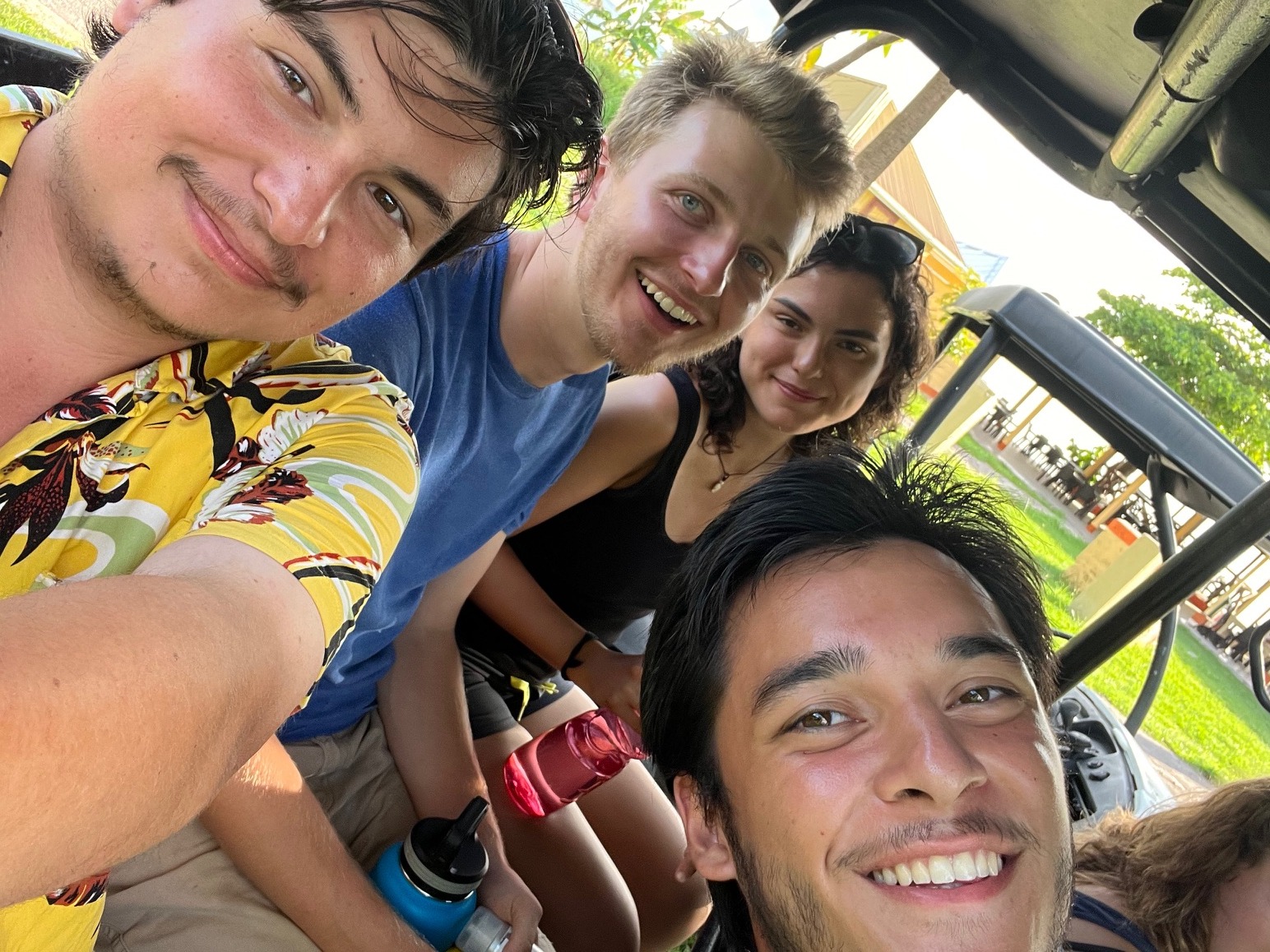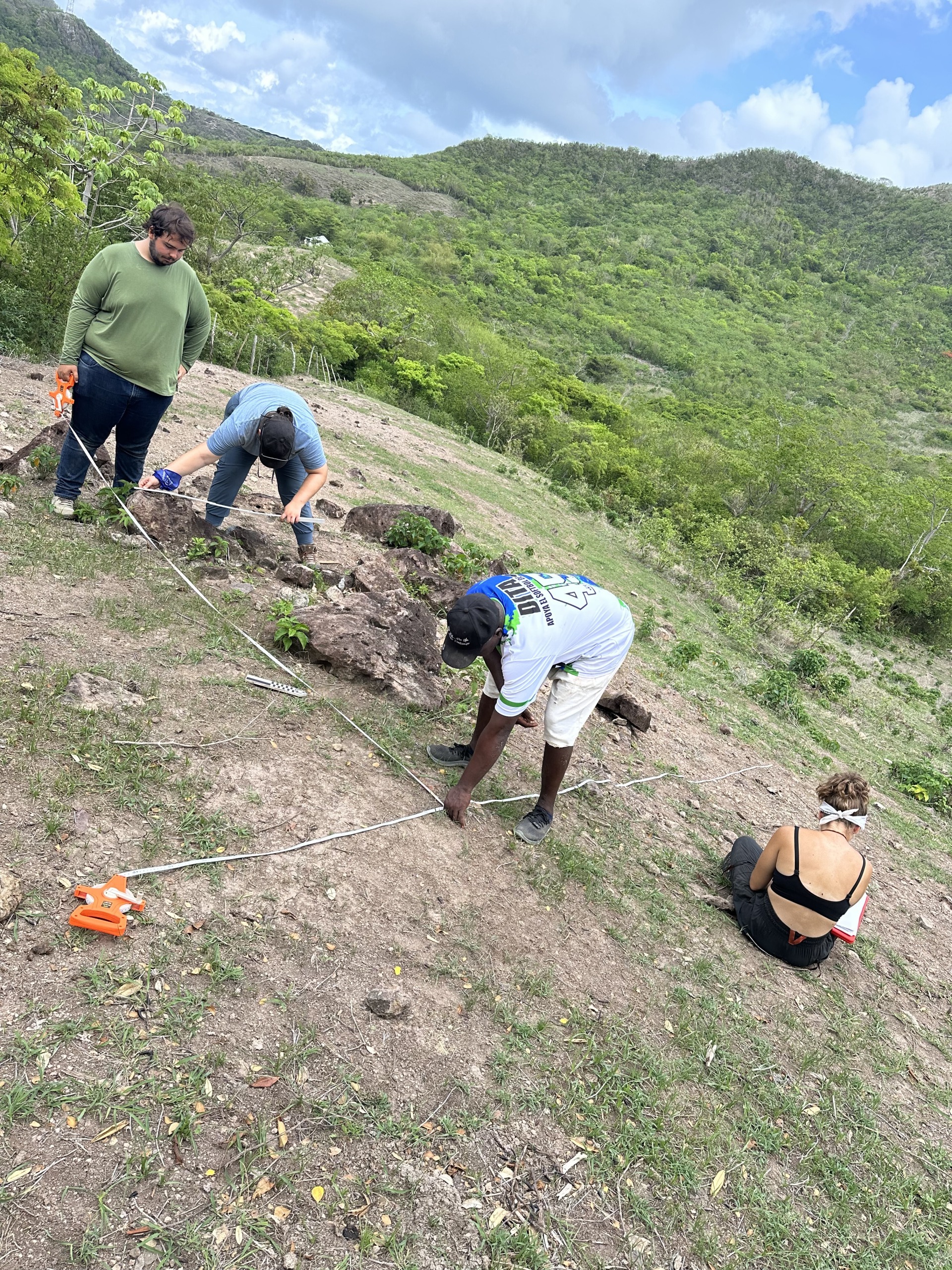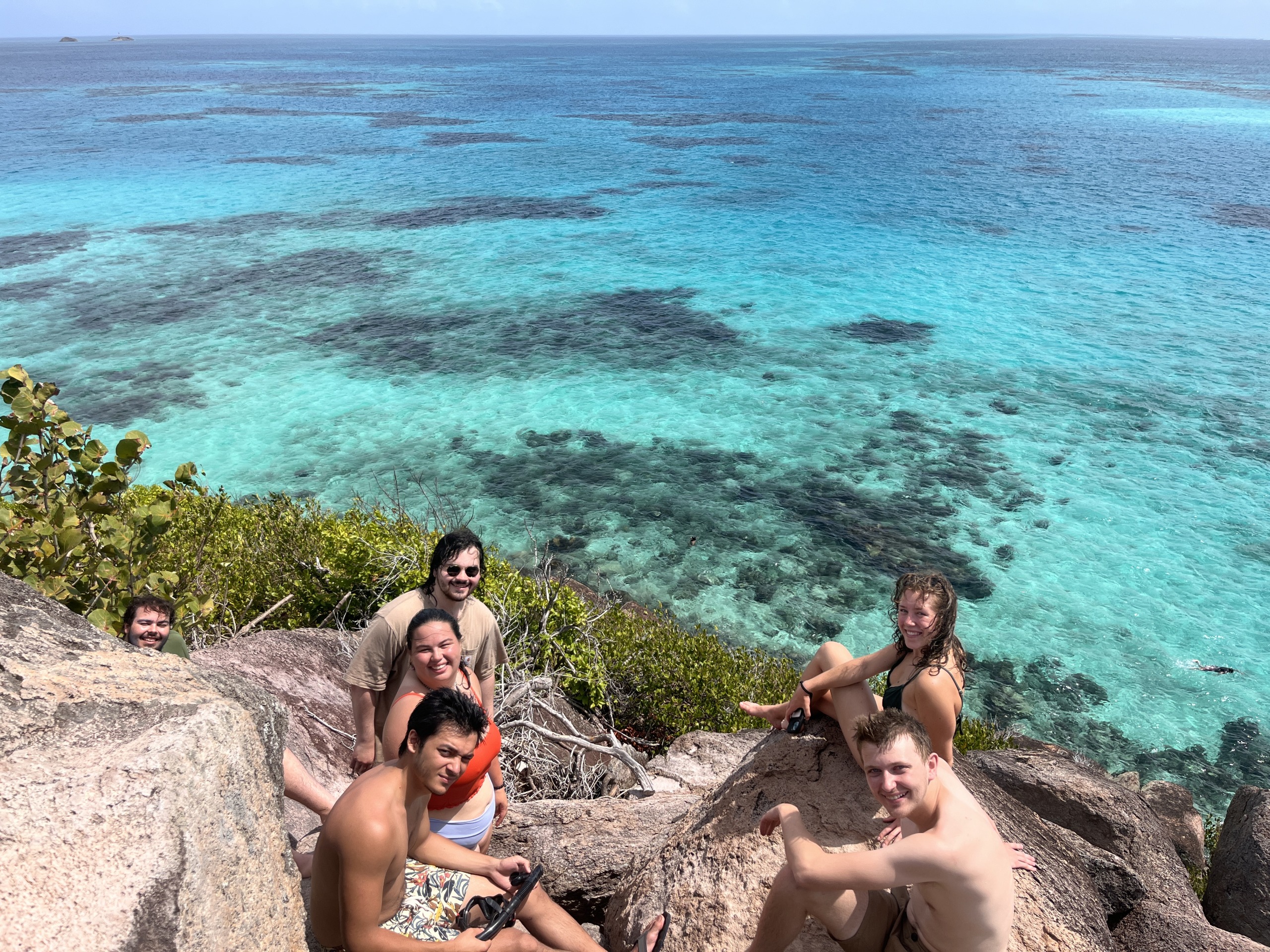This summer, our Western Caribbean field school students embarked on an unforgettable journey to the islands of Providence and Santa Catalina. Through hands-on ethnographic research and community archaeology, they gained invaluable insights into the rich cultural heritage and complex history of the Native Raizal people. The students’ work focused on understanding the islands’ historical timeline and documenting the stories, language, and culture of the Raizal community. In their free time they have traveled the length of the island, made deep connections with their local collaborators, and some even decided to get their scuba certifications! As their field school draws to a close, we invite you to look back on the wealth of experiences and memories they have gained this season. This captivating photo journal showcases an assortment of their most memorable moments, lessons learned, and even a few unexpected surprises.
Read on to see the world through the lens and words of Summer 2024 students!
Week 1 Highlights
“This week, we spent a lot of time getting used to the island. We did our first days of field work, digging an excavation trench and starting a unit, all while being followed around by the many friendly dogs of the island. We also enjoyed time off at the beach, where there were many friendly dogs as well.”
“We started off our week by going to our first site, Shortcut. It was a super hot day but we got to work collecting pottery sherds and pipe stems from the surface and excavating a trench that we think might be part of a maroon house. Throughout the rest of the week we started getting our scuba certification and continued to work on excavating the trench and even started a new excavation unit full of animal bones, charcoal, and iron.”
“This week we held a dinner event at the posada. Members from the community joined us as we ate and shared stories that transcend cultural barriers. It was a great experience and a great start to the field school. In addition, we have conducted field work in multiple locations so far. A monitor is at each location who can see the work we are doing. It is enjoyable talking to monitors to learn more about their daily lives on the island.”
“I went on my first two dives and accidentally kicked a shark and lived to tell the tale. It was like a whole other world at the bottom of the sea and getting to see and swim near whole schools of fish and sharks was a life changing experience.”
“I learned about the history of the maroons on Providence and how we are able to piece that history together from a combination of oral history, archeological artifacts, and documents. I also learned about the importance of having local monitors so that we can both get an accurate depiction of what was potentially going on at a site and also so that we can make sure we are properly serving the local community.”
Week 2 Highlights
“This week, I got scuba certified and had the opportunity to dive off the reef of Providencia with multiple reef sharks and hundreds of jellyfish. We also did a ground survey of a heavily forested property, which required careful maneuvering to avoid cockspurs and thorns. The property was beautiful. In addition to that, we went out to multiple restaurants this week, one of which was on the beach. As we ate, black crabs kept moving under the table, occasionally pinching feet out of curiosity.”
“We started the week with a boat tour around the island. We were informed of many local histories surrounding different locations, orienting us to our surroundings. The next day, I went metal detecting at one of our sites on the south of the island, and found a large metal object buried deep in the ground. I also did excavation work at various northern sites on the island. Most of what I did in the latter portion of the week was ethnography. I was involved in three interviews with local people, with topics ranging from language to generational politics.”
“One highlight this week was finding the first sherd of colonoware that included its foot/footrim. This was exciting because we had never found a colonoware base/rim. The fact that the bottom had a foot shows adaptation from the yabba pot tradition slaves brought over from Africa. This could suggest indigenous influences and was not expected.”
“This week in Providencia, I learned that a sharp machete is a very useful tool, and is sorely missed if needed. I also learned how to date ceramic pipes based on its hole diameter. This is very useful to relatively precisely date archaeological sites, and will be incredibly helpful if I continue to do historical archaeology.”
Week 3 Highlights
“This week, I learned that even if you are not finding anything at all in the field, it is still valuable data to know where artifacts and people are and were not. This is valuable to keep in mind when continuing to do archaeological work in the future, especially during the more frustrating times when nothing is found.”
“This week, we had a traditional Rondon, a stew with a coconut base with many types of fish, 3 types of potatoes, plantains, and more. The event was a community cook-out of sorts, and resulted in many enjoyable conversations with community members. We also had a community presentation at a separate event, which was an exiting exchange of information and ideas and dissemination recent artifact finds.”
“The Rondon [traditional dish and communal meal] was by far my favorite part of the week and most memorable part of the field school. We got to help prepare the food, spend time in the beautiful house of one of our collaborators, and socialize as we smelled the smells of food cooking and hearing the sounds of conversation. The people were incredibly kind welcoming us to their Rondon and it was an invaluable experience.”
“Some of the most memorable moments were searching for a cannon on the beach and getting to talk it over with everyone at the rondon we helped hold. The cannon was memorable because it felt like it was out of a pirate book, combing a beach for the site of a sunken cannon. The Rodon was great because we got to talk it over with all the people we knew from our lectures and also helped cook the rondon. It was really nice to sit down and share a meal yet helped cook with all the people we’ve come to know over the last month.”
“This week I learned more about how to work cohesively as a team and how to be adaptable when we had to perform emergency archeology on a site that would soon be planted on if we didn’t excavate that very day.”


